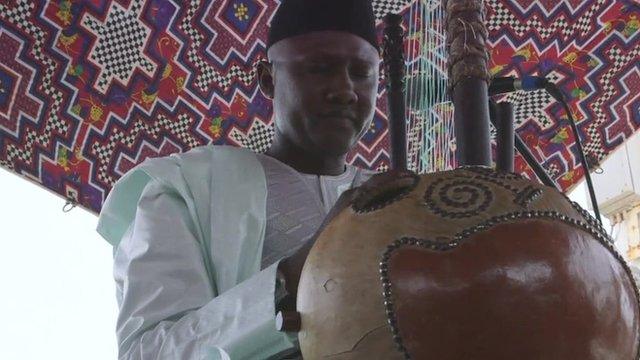King of jazz: The Nigerian saxophonist inspiring generations
- Published
Will Ross meets the staff and students at Peter King's College of Music
In a small practice room in the Nigerian city of Lagos, a young drummer breaks into sweat as he energetically thumps out rhythms for hours on end. In the next room, a tenor saxophonist is soaring through scales and arpeggios in pursuit of perfection.
"I play two or three hours every day. I'm working hard because I don't want to be mediocre," says the saxophonist, 21-year-old Joseph Shaibu.
"I'm trying out different genres of music so I can get my own voice out of it," he adds, before blowing some more.
The students at Peter King's College of Music in Lagos do not have to look far for inspiration - the college is run by a Nigerian great.
Peter King's musical career took off in the pre-independence 1950s when the highlife music style ruled. Back then, there was no music school and budding musicians had to learn on the job.
Boney M music director
It all began when King, aged 18, walked into the Central Hotel in Ibadan to watch Roy Chicago's band.
"It looked exactly like the American films we used to watch at the cinema - people's clothes and the way they danced holding each other like ballroom," he says, at his home opposite the music school.
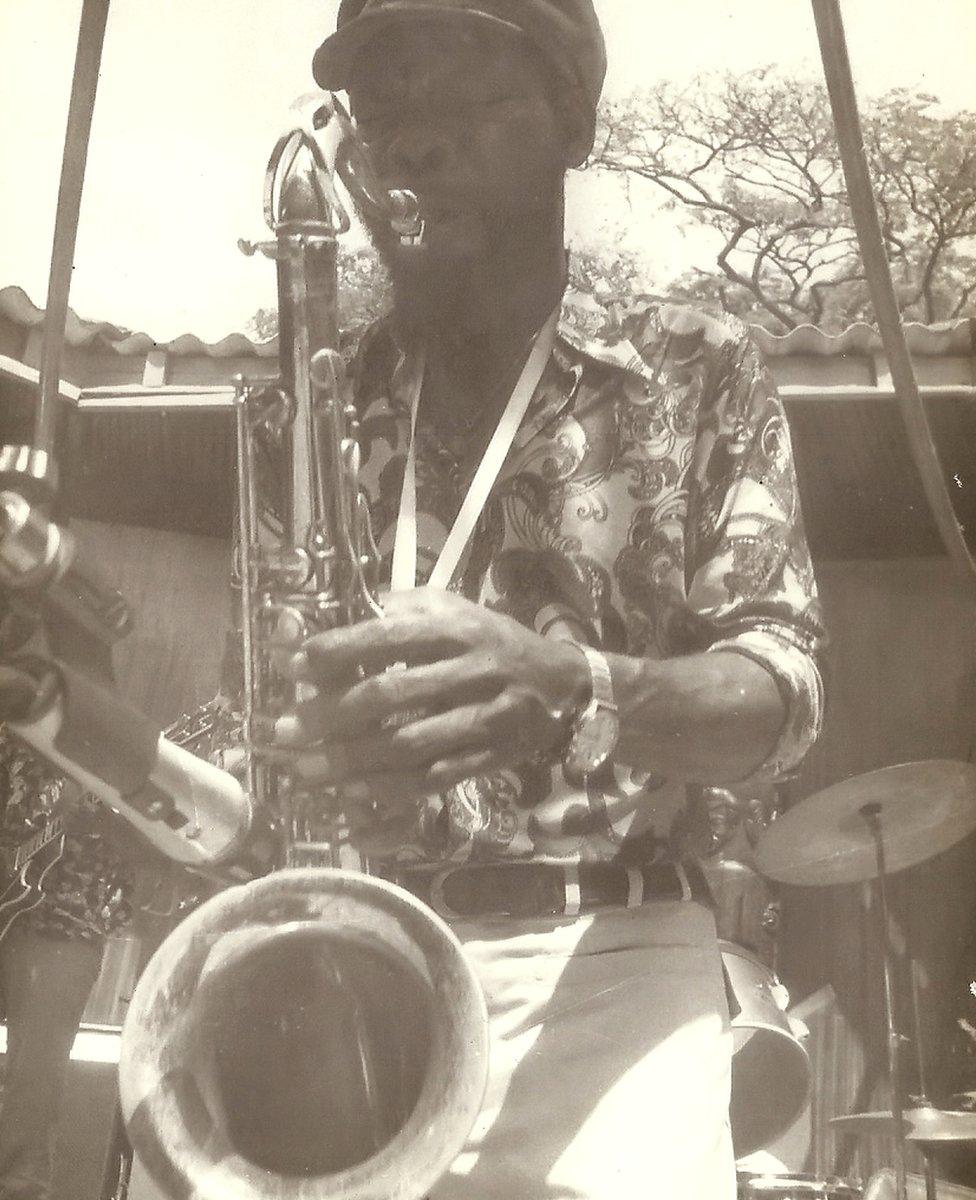
Peter King ended up going to study at the Trinity College of Music
King, known affectionately as PK, spied some maracas and claves on the stage at the Central Hotel and casually mentioned to his friend that he used to play them at home in his family band.
"That's when the trouble started. My friend told me I must get on stage and join in, but I was afraid to go on stage without talking to the bandleader.
"He started dragging me and it looked like we were going to fight. When it became too much I had no choice than play with the band."
He must have been spot on with the rhythm because before long he was drumming and taking lessons on the double bass while performing with the band every night.
The other musicians chipped in money from their own salaries to help.
Next came lessons on the trumpet but King had his eyes fixed on the saxophone and borrowed one to practise every morning.
After touring all over Nigeria with various groups, he joined the band behind the most popular musician of the day, Victor Olaiya.
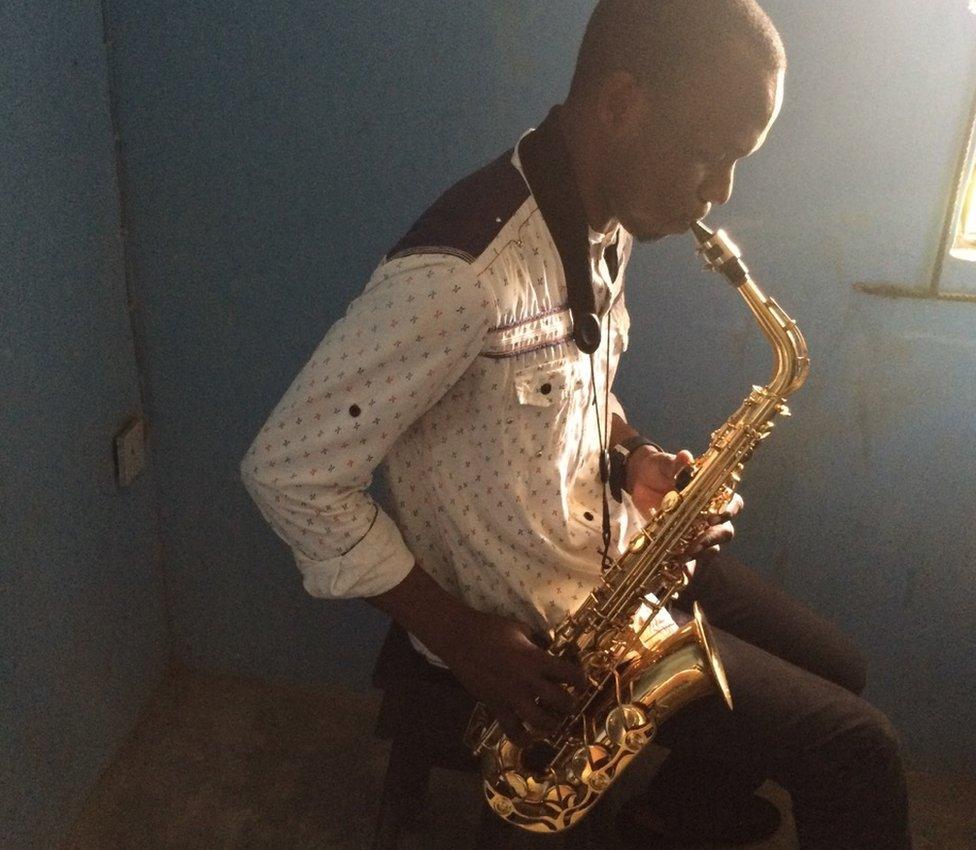
Students at the Peter King College of Music learn all types of music
By 1961 King was a very accomplished saxophonist. He headed to London to study at the Trinity College of Music.
He later came up with his own unique blend of highlife, jazz, Afrobeat and funk, toured with his African Jazz Messengers band and was still in Europe as disco was taking over the dance floors in the 1970s.
He dived into the genre and served as director of music on Boney M's first European tour.
'Music is no joke'
His philosophy of learning from all different types of music is clearly evident today at his music school in Nigeria.
"Mozart has lots of nice compositions and when you hear them there is this joy that comes within," says one of the teachers Nelson Taiwo, who was himself taught by King.
"When you talk of the history of music, it is something many people do not want to study because they feel they want to do popular music not classical. So you have to find a way of making them like it - use examples they can relate to," says Taiwo.
I watch as he gets the whole class to sing along to Mozart's Eine Kleine Nachtmusik. The students switch to a version by a Nigerian gospel singer and he despairs and everyone roars with laughter.
"They should stop giving me Yinka Ayefele's version. If Mozart was alive today, maybe Yinka would be in jail. Not just for stealing it - not doing it the right way is also an offence."
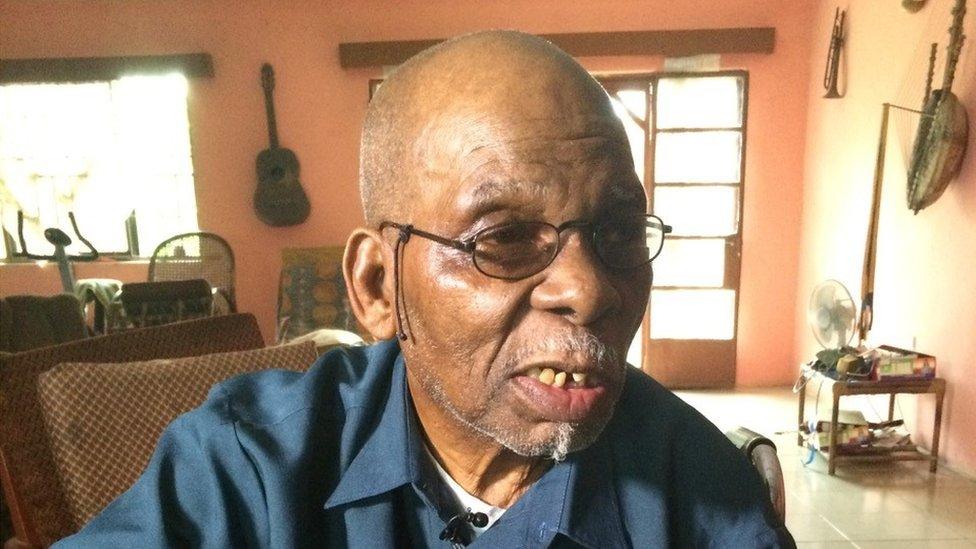
Peter King lives opposite the school he founded in Lagos, surrounded by musical instruments

Students also learn theory at the music school
Some 33 years after King opened the school, graduates are spread throughout Nigeria's music industry and beyond.
The most famous of them all is the singer-songwriter Asa, who has made waves on the international scene.
"I was teaching her and she started seeing that music is no joke, it's a serious thing," King remembers.
"So if we teach her something and she plays it very well she would become so happy, like a child you've given a new toy."
He had a stroke a couple of years ago and is still recovering now, but he is attentive and he keeps a close eye - and ear - on the students.
As the school's second band puts on a short show in the auditorium, King is in the front row of the audience tapping along to the beats on the arm of his wheelchair.
"Not bad at all. Not bad. They've tried," he says afterwards.
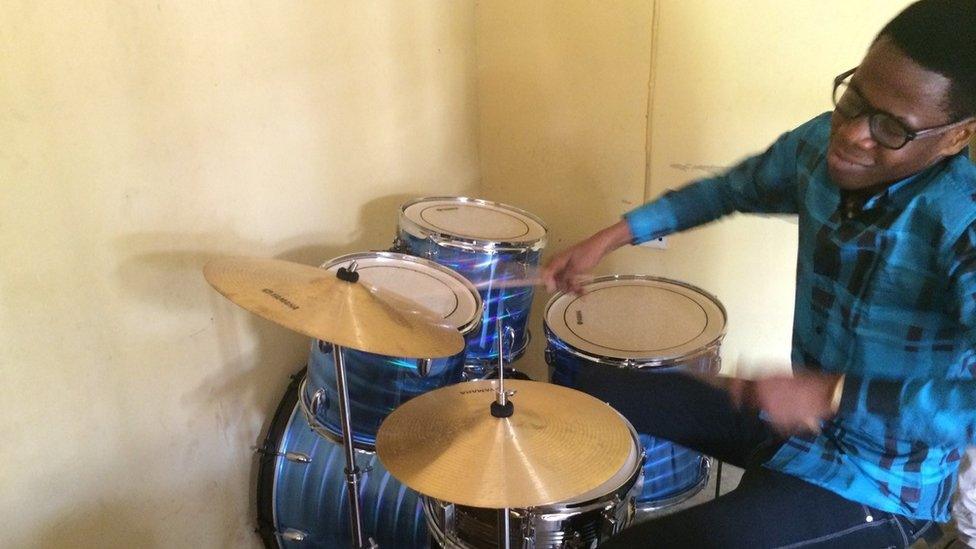
"I usually played in my Mum's cupboard," said Goodness Offong
The whole idea of setting up the school was born when King returned from London in the late 1970s and was frustrated by the standard of his fellow musicians.
"It was a hell of a time," he says. "It took so much from me to get a band together. Imagine you are starting a band with a bass player who knew so little I had to start teaching him.
"And the trumpeter didn't know much either and I had to start teaching him too, even teaching him scales. It was too much, so I thought, why don't I just start a school?"
Differentiating between major and minor
Three decades later, the school's current students are hugely grateful for the opportunity.
"Most musicians outside this place, they don't really know the theoretical part of music they just play it," says 21-year-old saxophonist Grace Obruche.
"If it weren't for Peter King I wouldn't even be able to differentiate between a major and minor."
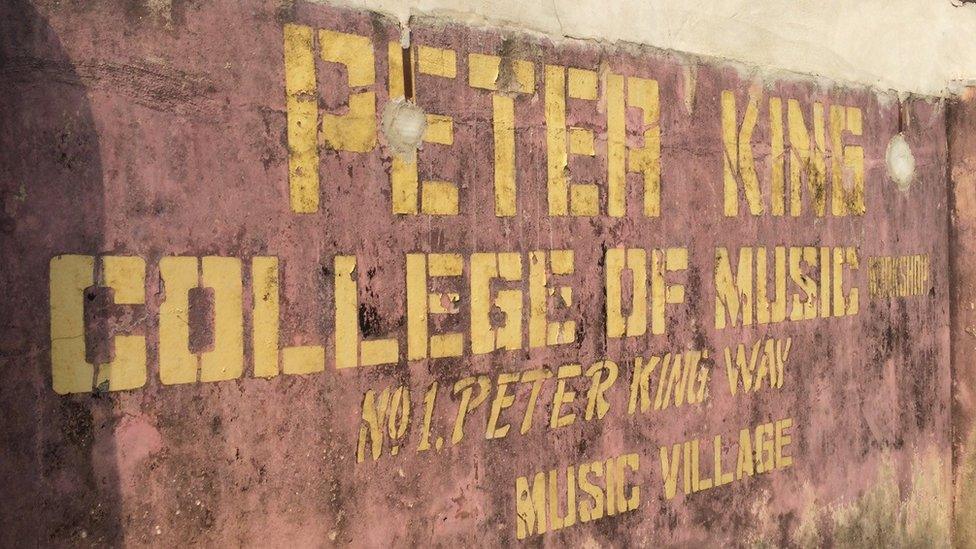
The college has been going for more than 30 years
Goodness Offong, 19, started playing the drums as a toddler. "I usually played in my mum's cupboard, then I carried on in primary school," he says.
"My friend told me about Peter King's College of Music and when I saw a concert here, that is what inspired me to continue at the school."
It is hard for young Nigerians to find job opportunities but for many of these students a musical career is a realistic option.
Although convincing your mother can be tough, says Offong.
"My mum is supporting me but she doesn't want me to be a drummer, she wants me to be a banker. The drumming will win," he says with a big grin.
As for King, he is still composing and he is adding a recording studio at the school.
"What drives me is I'm always fed up when I listen to music and nothing's happening," he says.
But there is definitely something happening at this school.
The abundance of talent and determination, mixed with King's focus on excellence, makes a tasty recipe for musical success.
- Published24 September 2015
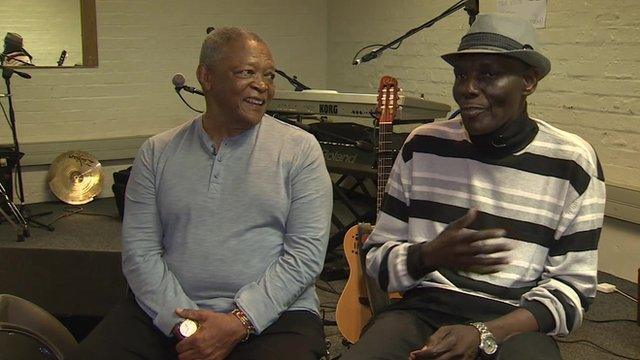
- Published8 July 2015
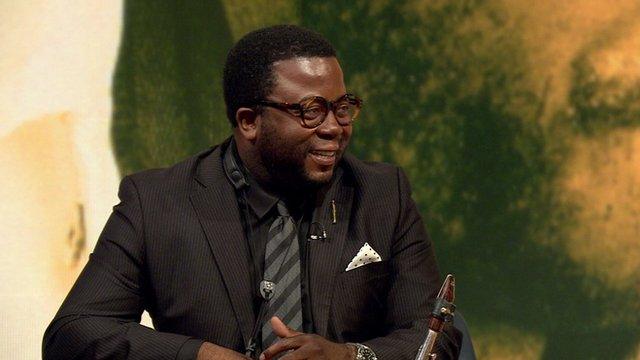
- Published26 May 2015
